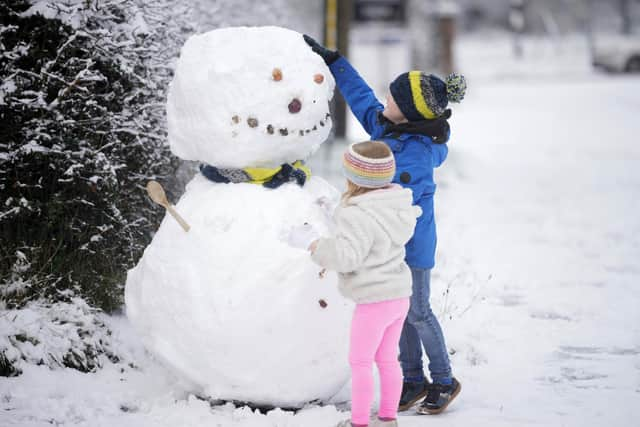Lancashire weather forecast: This is the day it is most likely to snow
and live on Freeview channel 276
An urgent amber cold health alert has been issued for Lancashire and the rest of the North West as temperatures are set to plummet.
The five-day alert, which runs until 12pm on Friday (January 12), was issued by the UK Health Security Agency (UKHSA) and the Met Office and means "cold weather impacts are likely to be felt across the whole health service for an extended period of time".
Advertisement
Hide AdAdvertisement
Hide AdAccording to theweatheroutlook next Tuesday (January 16) has the biggest chance of Lancashire seeing snow, with 48 per cent.


The snow forecast percentage is generated by combining data from different computer models and rates it as a medium range snow risk.
What is needed for snow?
In the UK conditions are often marginal for snow and a number of variables need to align. For example, the upper level air must be cold enough. If it isn't then precipitation will fall as rain or freezing rain regardless of how cold it is at the ground level.
Upper level air temperatures need to be at or below freezing point which is 0C (32F). That is most likely to happen when winds are blowing from a northerly or easterly direction.
Advertisement
Hide AdAdvertisement
Hide AdTemperatures at the surface generally need to be at or below 2C (36F). However, it can snow when they are higher, particularly in the spring when the air is often drier and the dew points are correspondingly lower.
A cold snap on its own is usually not enough for widespread snow because there also needs to be enough moisture in the air. For example, a northerly wind often brings dry weather to southern Britain with snow showers more likely in the north and around coastal counties.
In the UK snow is more likely to fall in the north and over higher ground.